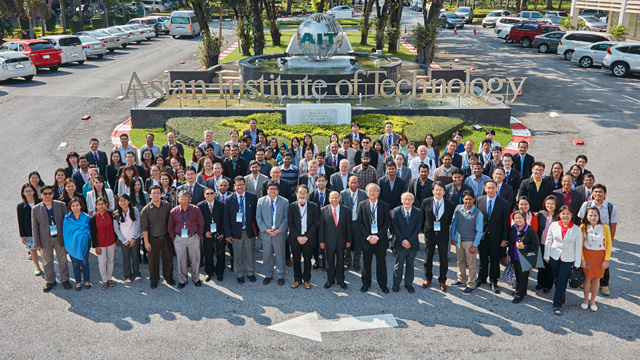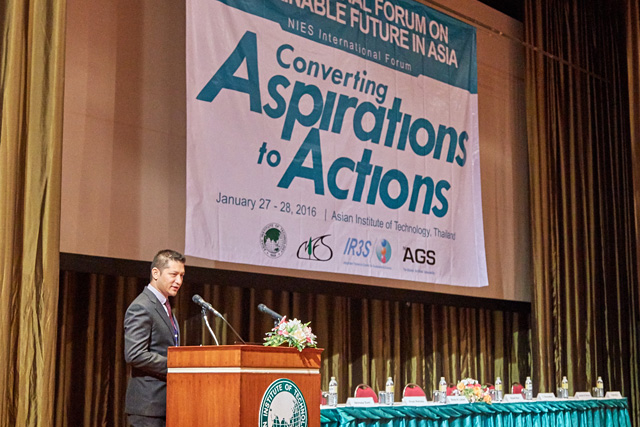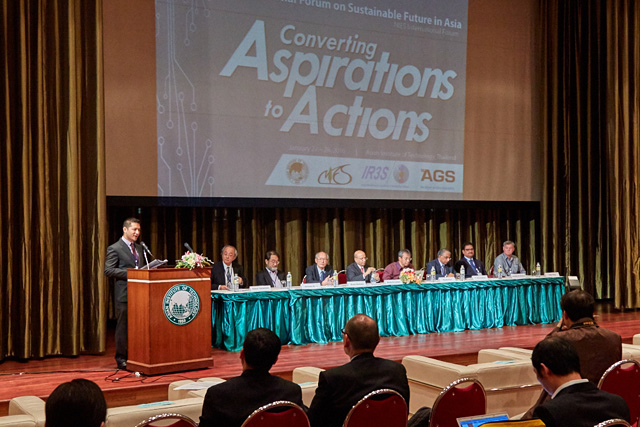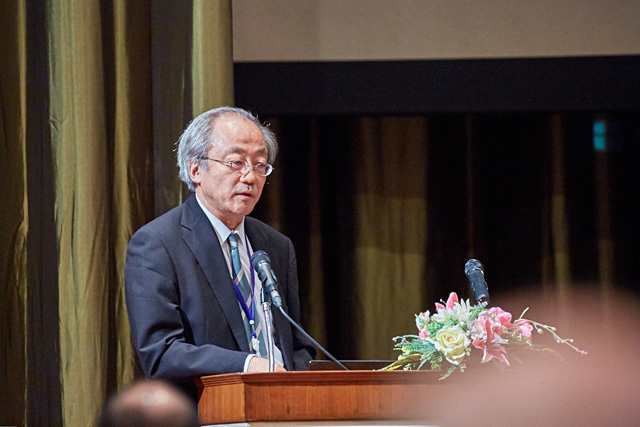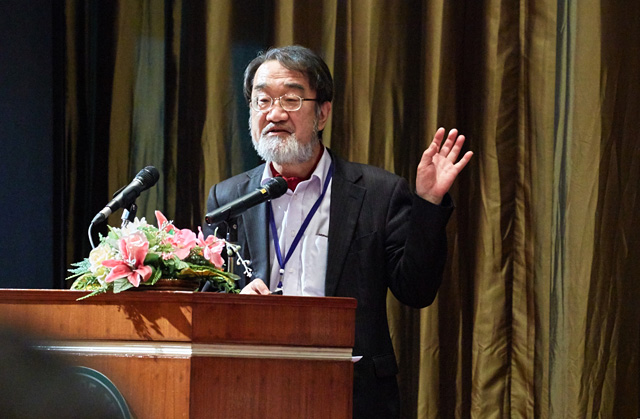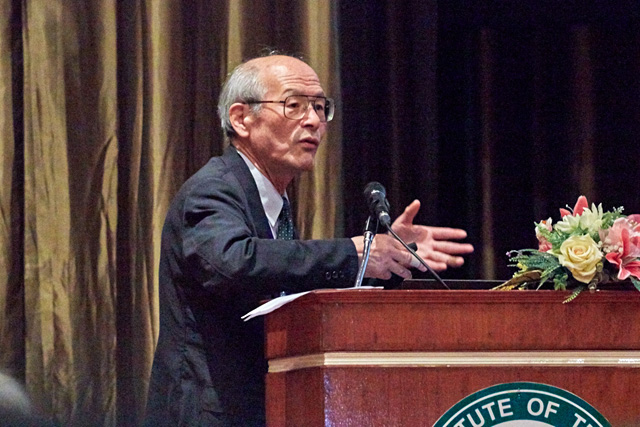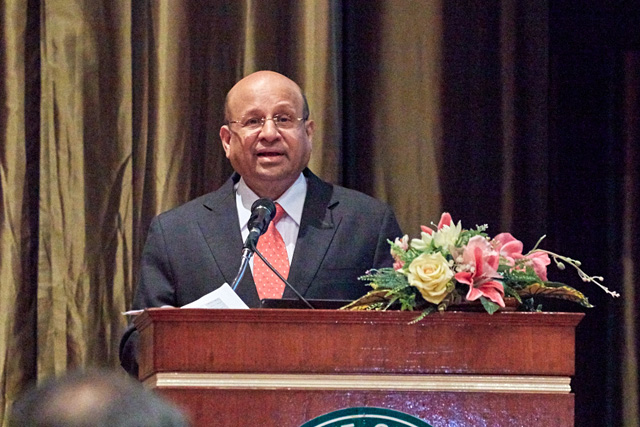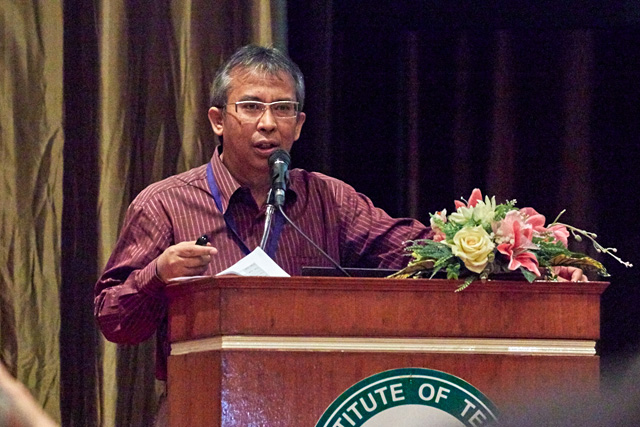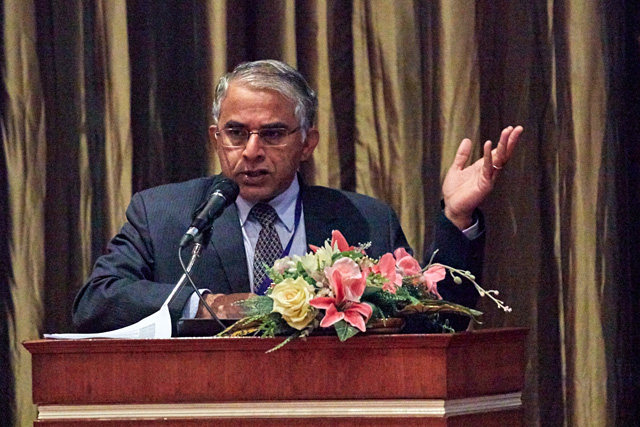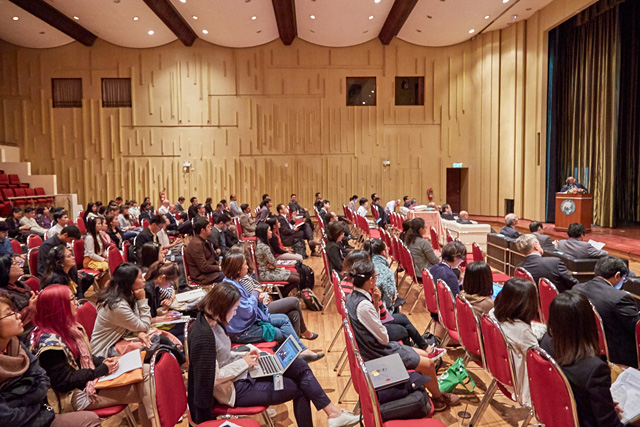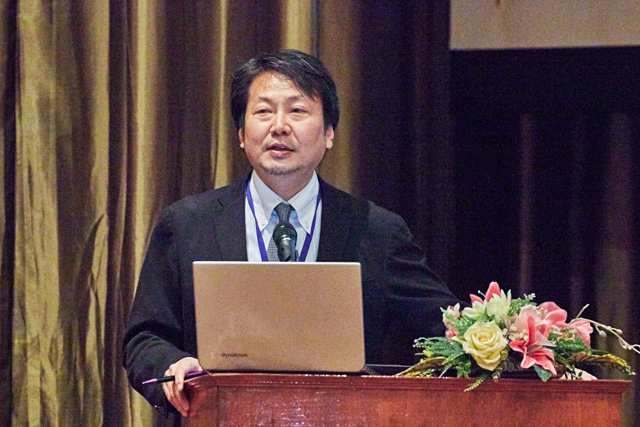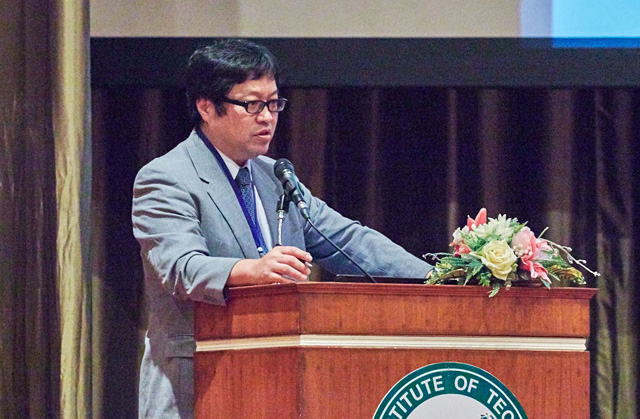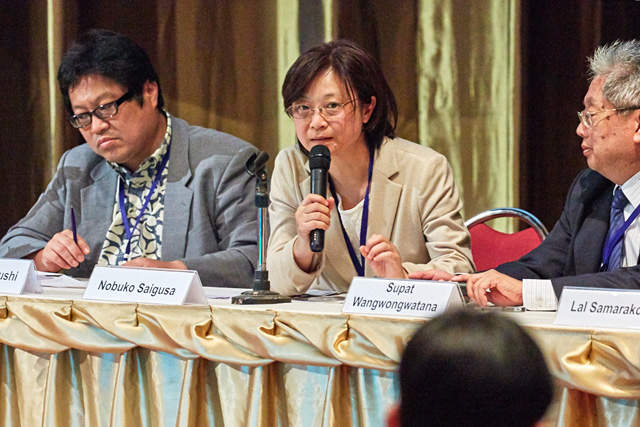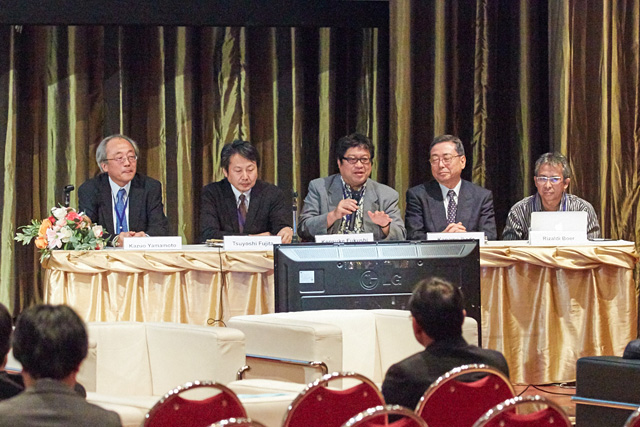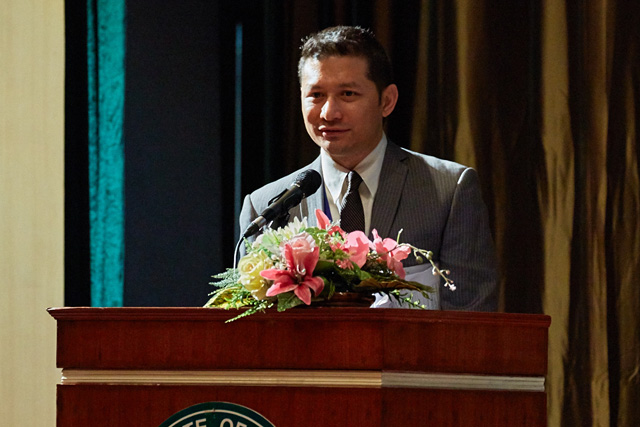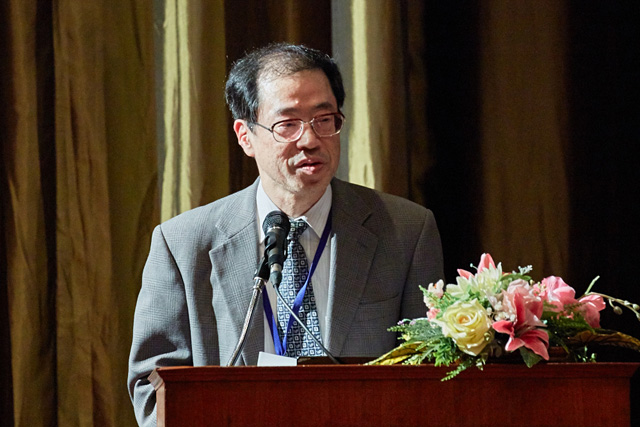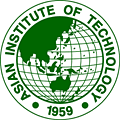1st International Forum on Sustainable Future in Asia 1st NIES International Forum
January 27-28, 2016
Pathumthani, Thailand
- Top
- About
- Program
- Speakers
- Presentations
- Posters
- Report
The International Forum on Sustainable Future in Asia is to be held from 27 to 28 January 2016 at the Asian Institute of Technology, Pathumthani, Thailand.
The forum intends to bring together researchers from universities and governmental institutions, experts from governments and industries, and graduate and post-graduate students with interests in discourses on sustainable development in Asia in order to seek new ways of building bridges between science and policy through stimulating discussions among key stakeholders, catalyzing coherent researches on relevant policy issues through knowledge networks and institutional mechanisms to support trans-boundary thinking and problem-solving, and determining feasible paths towards truly sustainable societies through converting aspirations into actions at local, national and regional levels.
This forum is jointly organized by the Asian Institute of Technology, the National Institute for Environmental Studies, Japan, and the Integrated Research System for Sustainability Science of the University of Tokyo, Japan.
| Date | January 27-28, 2016 |
|---|---|
| Venue | Asian Institute of Technology Pathumthani, Thailand |
| Organizer | National Institute for Environmental Studies, Japan (NIES) |
| Co-organizers | Asian Institute of Technology, Thailand (AIT) Integrated Research System of Sustainability Science of the University of Tokyo, Japan (IR3S) Alliance for Global Sustainability Asia |
Contact
National Institute for Environmental Studies (NIES)
16-2 Onogawa, Tsukuba, Ibaraki 305-8506 JAPAN
Background and Objectives
2015 saw the emergence of two major international aspirations related to the environment - the Sustainable Development Goals (SDGs) formally adopted by the UN General Assembly in September as the new global development agenda and; the Paris Agreement at UNFCCC COP21 as global commitment to limit the temperature increase below 2° Celsius. These landmark accomplishments do not only provide impetus to national level action plans on fulfilling the commitments but also underscore the need for further actions at regional and local levels. These historic turning points unearth the imperative questions on what institutional architectures and policy frameworks can help mankind leapfrog towards the sustainable future. Nonetheless, these historic steps taken in unison calls for policy-relevant researches, highlight the exigency of knowledge networks and institutional mechanisms to support cross-boundary thinking for integrated policymaking, and signifies the demand for policies that inspire action from key stakeholders.
The "International Forum on Sustainable Future in Asia: Converting Aspirations to Actions" will explore the four pressing environmental issues in the region in order to elucidate the current efforts of researchers and policy-makers in the Asian countries, and understand the momentum in congruence with the targets under the SDGs and the Paris Agreement. The four sustainability challenges are:
Structure of the Forum
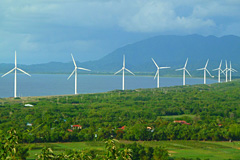
1. Low Carbon Societies
The Paris Agreement calls for global transition to a low-carbon future by cutting emissions through innovation. In this front, Asian Governments are gearing towards making progress in developing low carbon societies and have made proposals for monitoring industry, business, transport and individual households sectors. Earlier efforts by governments have also defined progress in realizing this transition, nonetheless, challenges still remain in the way governments and citizens perceive the process. This in fact has led to heterogeneous approaches by (or within) a state making it difficult to strategies or recommend any particular measure for a country or a region. One way to bring uniformity to the process is by developing a common framework of action at an international, regional or national level. Such measures are already recommended by the United Nations and regional bodies such as ASEAN. The recent sustainable development goals also seek for low carbon measures and particularly on monitoring low carbon scenarios. Considering all the current needs, it is important to bring together the various developments that have taken place in monitoring and implementing low carbon measures in Asia and then define new ways that can meet the commitments made at Paris Agreement and at the SDG meeting in New York.

2. Environmental Monitoring
Though environmental problems are considered a global issue, the impact of environmental problems is faced more at a local scale. Hence addressing such problems require monitoring multi-scale environmental issues and we should see how it effects national and international scenarios. In order to increase significantly the availability of high-quality, timely and reliable data at different spatial scales, both technological development and international framework for cooperation are important. The Paris Agreement provides significant impetus to Monitoring Reporting and Verification processes. The SDG - Goal 9 calls for innovation and infrastructural development as a means to provide good structured data compilation process. Considering all these, the symposium will thus look into the environmental monitoring from a local to a global level whereby, both the national and international commitments are met and adhered.

3. Biodiversity and Ecosystem services
Asian region is rich in biodiversity and is also a hub for ecosystem services. However, rapid development, industrial growth and illegal harvesting have led to depletion of biodiversity. In order to address this complexity, spatial and temporal information on biodiversity is fundamental. Such information is also required for assessing the various transformation exercises carried out by governments and local bodies in Asia for conservation and sustainable use of biodiversity. The Paris Agreement also calls to Parties to take action to conserve and enhance, as appropriate, sinks and reservoirs of greenhouse gases as referred to in Article 4, paragraph 1(d), of the UNFCCC, including forests. In the same vain, there exists multiple research projects to monitor biodiversity loss and management. Integration of such projects are also essential to identify key measures for addressing the challenges faced to the Asian biodiversity ecosystem. Within the SDG framework, Goal 15 especially highlights the need for conservation of biodiversity. Hence monitoring of biodiversity and ecosystem services provides a key commitment to both the SDG framework and Paris Agreement.

4. Waste Management and Recycling
Waste management is one of the major issues that pose challenges to the growth of Asian cities. Although advanced technologies and intensive measures associated with waste management are available and practiced in some countries such as Japan and Singapore, other developing countries in Asia are still facing severe problems in managing waste. The key question is how scientists, researchers and policy makers can address the challenges related to waste management to meet the growing needs of the developing Asia. It is also important to review the existing laws, regulations and policies on waste management in developing countries and assess their effectiveness. As such, efforts is necessary to bridge the gaps between policy and technology through sharing an overall picture of the behavioral pattern of the society and socio-economic situation at the local level. SDG 11 (11.6) particularly refers to paying attention to waste management issues.
Day1 January 27, 2016
Opening Session8:30-11:50
-
Welcome Remarks
- Prof. Kazuo Yamamoto, Vice President for Resource Development, Asian Institute of Technology
-
- Prof. Akimasa Sumi, President, National Institute for Environmental Studies
-
Photo session / Coffee break9:30-10:00
-
- Dr. Shuzo Nishioka, Senior Research Advisor, Institute for Global Environmental Strategies
-
- Dr. Bindu N. Lohani, Head of Global Climate Change Practice, Centennial Group, USA
-
Keynote Address
-
Low Carbon Society
Prof. Rizaldi Boer, Executive Director, Centre for Climate Risk and Opportunity Management in Southeast Asia and Pacific, Bogor Agricultural University, Indonesia -
Waste Management and Recycling: Waste, Climate and Sustainable Development Convergence: AIT’s Contribution Toward Sustainable Waste Management in Asia
Dr. C. Visvanathan, Professor, School of Environment, Resources and Development, Asian Institute of Technology
-
Low Carbon Society
-
Lunch / Poster session11:50-13:20
Theme-113:20- 15:20
Developing Low Carbon Societies
-
ChairpersonDr. Hideo Harasawa, Vice President, National Institute for Environmental Studies
-
Presentations
-
1-1: Social Monitoring and Modelling Research for Interactive Solution Design
Prof. Tsuyoshi Fujita, Director, Center for Social and Environmental Systems Research, National Institute for Environmental Studies -
1-2: Academic contribution for the development of low carbon society
Prof. Kensuke Fukushi, Integrated Research System for Sustainability Science, The University of Tokyo -
1-3: Low carbon technology assessment and technology transfer in selected Asian countries
Dr. Mara Mendes, Senior Programme Specialist, Regional Resource Centre for Asia and the Pacific, Asian Institute of Technology -
1-4: Capacity Building for Low Carbon and Resilient Society
Ms. Chayathorn Thanawattanadamrong, Technical Expert, Capacity Building and Outreach Office, Thailand Greenhouse Gas Management Organization
-
1-1: Social Monitoring and Modelling Research for Interactive Solution Design
-
Discussions15:00-15:20
-
Coffee Break15:20-15:35
Theme-215:35- 17:15
Waste Management and Recycling
-
ChairpersonDr. Hiroyuki Katayama, Associate Professor, Department of Urban Engineering, The University of Tokyo
-
Presentations
-
2-1: Appropriate Management of Waste Disposal Site in Southeast Asia
Dr. Tomonori Ishigaki, Senior Researcher, Center for Material Cycles and Waste Management Research, National Institute for Environmental Studies -
2-2: Converting waste-into-resources in cities of Asia-Pacific: experiences from ESCAP’s regional programme on “Pro-poor and sustainable solid waste management in secondary cities and small towns”
Mr. Joao Aleluia, Project Coordinator, Environment and Development Division, United Nations Economic and Social Commission for Asia and the Pacific -
2-3: Rural Domestic Solid Waste in China: A Comprehensive Analysis of Characteristics, Management and Legislation
Dr. Niu Dongjie, Associate Professor, College of Environmental Science and Engineering, Tongji University -
2-4: Factors on E-waste Management System in Thailand
Mr. Thawal Saengsawang, Marketing Director, TES-AMM (Thailand) Co., Ltd.
-
2-1: Appropriate Management of Waste Disposal Site in Southeast Asia
-
Discussions17:15-17:40
-
Reception (Invited Guests Only)18:00
Day2 January 28, 2016
-
Keynote Address9:00-10:00
-
Biodiversity and Ecosystem Services: REDD+ is a Solution for Restoring Ecosystem Services and Biodiversity
Dr. Jitendra Vir Sharma, Indian Forest Service and Senior Fellow, The Energy and Resources Institute -
Environmental Monitoring: Monitoring and Environmental Impact Assessment - a Tool for Improved Project Design
Dr. Peter King, Senior Policy Advisor, Institute for Global Environmental Strategies
-
Biodiversity and Ecosystem Services: REDD+ is a Solution for Restoring Ecosystem Services and Biodiversity
-
Coffee break10:00-10:15
Theme-310:15- 11:55
Biodiversity and Ecosystem Services
-
ChairpersonDr. Nobuko Saigusa, Deputy Director, Center for Global Environmental Research, National Institute for Environmental Studies
-
Presentations
-
3-1: Health Risk Monitoring and Management for Sustainable Urban Environment
Dr. Hiroyuki Katayama, Associate Professor, Department of Urban Engineering, The University of Tokyo -
3-2: Biodiversity and Ecosystem Services of Communally Reserved Forests Managed by Indigenous People in a Human-modified Landscape in Borneo
Dr. Yayoi Takeuchi, Researcher, Center for Environmental Biology and Ecosystem Studies, National Institute for Environmental Studies -
3-3: Enhancing Resilience to Climate and Ecosystem Changes by Combining Traditional and Modern Bio Production Systems in Rural Asia
Dr. Geetha Mohan, Assistant Professor, Integrated Research System for Sustainability Science, The University of Tokyo -
3-4: Contribution of the REDD+ Scheme to Carbon Emission Reductions and Biodiversity Conservation in Southeast Asia
Dr. Nophea Sasaki, Associate Professor, School of Environment, Resources and Development, Asian Institute of Technology
-
3-1: Health Risk Monitoring and Management for Sustainable Urban Environment
-
Discussions11:55-12:20
-
Lunch / Poster session12:20-13:50
Theme-413:50 – 15:05
Environmental Monitoring
-
ChairpersonProf. Kensuke Fukushi, Integrated Research System for Sustainability Science, The University of Tokyo
-
Presentations
-
4-1: Monitoring and Detection of Carbon Cycle Change using an Integrated Observation, Modeling and Analysis System
Dr. Nobuko Saigusa, Deputy Director, Center for Global Environmental Research, National Institute for Environmental Studies -
4-2: Monitoring of Atmospheric Environment in Asia
Dr. Supat Wangwongwatana, Senior Programme Specialist, Regional Resource Centre for Asia and the Pacific, Asian Institute of Technology -
4-3: Geoinformatics for Environmental Information Collection, Management and Monitoring
Dr. Lal Samarakoon, Director, GeoInformatics Centre, Asian Institute of Technology
-
4-1: Monitoring and Detection of Carbon Cycle Change using an Integrated Observation, Modeling and Analysis System
-
Discussions15:05-15:20
-
Coffee Break15:20-15:40
Discussion15:40-17:20
-
Panel DiscussionPanelists
- Prof. Kazuo Yamamoto, Vice President for Resource Development, Asian Institute of Technology
- Prof. Tsuyoshi Fujita, Director, Center for Social and Environmental Systems Research, National Institute for Environmental Studies
- Prof. Kensuke Fukushi, Integrated Research System for Sustainability Science, The University of Tokyo
- Mr. Kaname Ikeda, President, Remote Sensing Technology Center of Japan
- Prof. Rizaldi Boer, Executive Director, Centre for Climate Risk and Opportunity Management in Southeast Asia and Pacific, Bogor Agricultural University, Indonesia
Moderator- Mr. Osamu Mizuno, Director, Regional Resource Centre for Asia and the Pacific, Asian Institute of Technology
-
Open session
- Wrap-up of the thematic sessions
- Joint Statement and Future Prospects for the Consortium
Moderator- Dr. Hideo Harasawa, Vice President, National Institute for Environmental Studies
-
Closing remarksDr. Hideo Harasawa, Vice President, National Institute for Environmental Studies
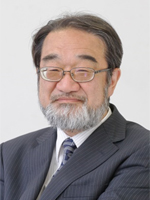
Akimasa Sumi
President
National Institute for Environmental Studies
Japan
Prof. Akimasa Sumi is the President of the National Institute for Environmental Studies (NIES), Japan since April 2013. He obtained his Bachelor, Master, and Doctoral Degrees from the University of Tokyo (UTokyo), Japan in 1971, 1973, and 1985, respectively. His research interests include numerical weather prediction, monsoon dynamics, tropical meteorology, climate dynamics including ENSO and global warming simulation. He started his career at Japan Meteorological Agency in 1973 and assumed various positions since then. He also worked as Research Associate in the Department of Meteorology in University of Hawaii during 1979-1981. He joined the UTokyo in 1985 as Associate Professor and was promoted to be a Full Professor in 1991. Prof. Sumi was a Director of Center for Climate System Research of UTokyo between 1994 and 2004; and was an Executive Director of TIGS between 2005 and 2012. He assumed the position as Vice President at NIES from October 2012 to March 2013. Prof. Sumi received Yamamoto Award by Japan Meteorological Society in 1983 and Fujiwara Award by Japan Meteorological Society in 1995.
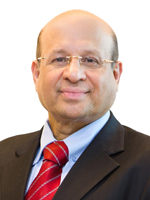
Bindu N. Lohani
Former Vice-President for Knowledge Management and Sustainable Development
Asian Development Bank
Dr. Bindu Lohani is currently the Head of Global Climate Change Practice, Centennial Group, USA; Distinguished Fellow, Institute for Global Environmental Strategies, Japan; and Chief Advisor, K-Water and Founding Member; Asian Water Council, Korea. He was Ranking Vice-President of the Asian Development Bank (ADB) for Knowledge Management and Sustainable Development until 30 June 2015. He was responsible for the ADB's Economic Research and Regional Cooperation Department (Office of the Chief Economist), Sustainable Development and Climate Change Department, and Office of Information Systems and Technology. Before the above position, Dr. Lohani was Vice-President (Finance and Administration) of ADB. He also served as Chair of Investment Committee of the Pension Fund (more than $2 billion); Chair of Asset Liability Management Committee; and Chair of Crisis Management Committee. In his almost 30 years in ADB, he has held several positions, including Director-General and Chief Compliance Officer of the Regional and Sustainable Development Department and Special Advisor to the President on Clean Energy, Climate Change and Environment. Before joining ADB, he worked for the Government of Nepal and was Division Chairman of the Environmental Engineering Program at the Asian Institute of Technology. Dr. Lohani holds a Bachelor's Degree in Civil Engineering, a Masters in Civil Engineering and Doctoral degree in Environmental Engineering.
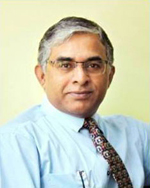
C. Visvanathan
Professor
Asian Institute of Technology
Chettiyappan Visvanathan is a Professor at the School of Environment, Resources and Development, Asian Institute of Technology (AIT). He has a Ph.D. (Chemical /Environmental Engineering) from Institute National Polytechnique, Toulouse, France. His teaching and (application and policy) research covers a broader range of issues in the field of solid waste and wastewater treatment, addressing the overall sustainability dimension. Some of the specific research interests include; sustainable solid waste disposal and holistic waste management, and 3R- waste, reduce, reuse and recycle (3R), landfill pre-treatment technologies, methane oxidation and greenhouse gas emission related to landfill designs, Sustainable Consumption and Production, Cleaner Production and Industrial Environmental Management, and Membrane technologies for water and wastewater treatment. He has published more than 100 papers in peer-reviewed international journals. With more than 25 years of experience in teaching environmental engineering and management related courses at graduate level at AIT, he is continually involved in designing, developing and delivering the academic curriculum on new and emerging topics in solid waste and wastewater sector. Besides academic teaching, he also undertakes consultancy projects with the United Nations and other international organizations. He has also worked as Project Engineer- Asia Division at the International Training Center for Water Resources Management, Sophia Antipolis, France, and as a short term consultant to UNEP Industry and Environment Office, Paris, France. For further details visit: <a href="http://www.faculty.ait.ac.th/visu/" target="_blank">http://www.faculty.ait.ac.th/visu/</a>
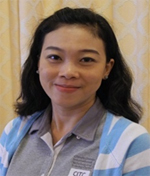
Chayathorn Thanawattanadamrong
Technical Officer
Thailand Greenhouse Gas Management Organization
Miss Chayathorn Thanawattanadamrong is currently working at Thailand Greenhouse Gas Management Organization (Public organization) as a Technical Expert. She obtained her Master Degree on Environmental Science from Chulalongkorn University, Thailand. She was member of curriculum development team of Climate Change International Technical and Training Center (CITC) on “Climate change management for sustainable development” curriculum and the manager and organizer of CITC Training workshop exhibition and conference.

Geetha Mohan
Assistant Professor
The University of Tokyo
Dr. Geetha Mohan holds his Master's in Quantitative Economics, M.Phil. and Ph.D. in Economics from Andhra University, India. Before joining the Integrated Research System for Sustainable Science (IR3S), he worked in various international and national institutes/organizations, such as Visiting Scientist in one of the CGIAR institutes International Crops Research Institute for the Semi-Arid Tropics (ICRISAT), India; UNU-JSPS Postdoctoral Research Fellow at UNU-ISP and IR3S, Tokyo; Research Analyst in one of the India's premier economic research institutions, National Council of Applied Economic Research (NCAER), India; Research Investigator in Agro-Economic Research Centre (AERC), Andhra University, Ministry of Agriculture, India; Field Supervisor in Centre for Economic and Social Studies (CESS), India; and Research Investigator (field) with part of Centre for Development Research, Germany. Dr. Geetha major research interests are agricultural economics, economics of climate change, impact evaluation, adaptation strategies, environmental impacts, econometrics, quantitative and qualitative methods, rural development and crop simulation models.
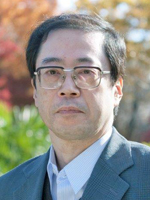
Hideo Harasawa
Vice President
National Institute for Environmental Studies, Japan
Dr. Hideo Harasawa is the Vice President of the National Institute for Environmental Studies (NIES), Japan since 2013. He obtained his Bachelor and Master Degrees from the University of Tokyo (UTokyo), Japan in 1976 and 1978, respectively. He completed his Ph.D. from the Kyoto University, Japan in 1985. His research areas include global warming impacts and adaptation, environmental engineering, IPCC WG2 TAR (Ch 11 Asia), CLA and AR4 (Ch 10 Asia) CLA. He joined NIES as Researcher in 1978 and assumed various positions at NIES from 1992 to 2008. Dr. Harasawa became Director of Environmental Planning Section of Social and Environmental Systems Division, NIES in 2005. He was the Director of Environment and Energy, Council for Science, Technology and Innovation Policy, Cabinet Office, Government of Japan in 2008. Dr. Harasawa rejoined NIES in 2010 as the Director of the Center for Social and Environmental Systems Research and is the Vice President since 2013.
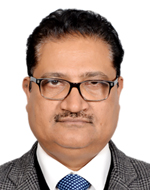
Jitendra Vir Sharma
Indian Forest Service and Senior Fellow
The Energy and Resources Institute
Dr. Jitendra Vir Sharma belongs to Indian Forest Service, a practicing forester having more than 30 years of experience for managing tropical and temperate forests. He did his masters in Botany, Forestry and Law, M.Phil. in Social Sciences and Ph.D. in Natural Resource Economics with topic "Economic Valuation of Ecosystem Services. He has been negotiator on behalf of the Government of India to United Nations Forum on Forests (UNFF), Committee on Forestry (COFO) under FAO, Asia Pacific Forestry Commission (APFC) in addition he has been part of various Indian Delegations for forest, biodiversity and climate change. In addition, he headed the forest Policy and Forest International Cooperation in the Government of India. Dr. Sharma is at present on deputation to TERI as Senior Fellow and Faculty in the TERI University. He dealt various Research Projects on AR-CDM, REDD+, Community Conserve Areas, Integrated Watershed Management, Rehabilitation Forestry, Valuation of Ecosystem Services, Economic Impact of desertification, drought and land degradation, and Social Issues of the Forestry Sector. He has written many research papers, books and articles.
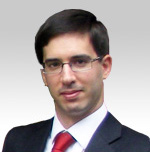
Joao Aleluia
Project Coordinator
United Nations Economic and Social Commission for Asia and the Pacific
João Aleluia is the coordinator of the regional programme on "Pro-poor and sustainable solid waste management in secondary cities and small towns", which has been implemented by UNESCAP since 2009. With ESCAP, Joao also worked on initiatives related to the efficient use of energy and advanced-fossil fuel technologies. Prior to joining ESCAP, Joao managed the operations of a Norwegian-owned CDM project development company based in Beijing, China. He also worked as a management and strategy consultant for several years. Joao holds a Master in Science in Engineering and Industrial Management (Technical University of Lisbon), as well as a Master's in Energy Management from ESCP-EAP (Paris), IFP-French Petroleum Institute, and BI Norwegian School of Management.
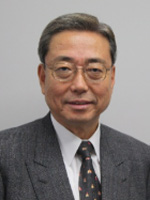
Kaname Ikeda
President
Remote Sensing Technology Center of Japan
Mr. Kaname Ikeda obtained his degree specializing in Nuclear Engineering from the University of Tokyo, Japan in 1968 and has been long engaged in administration of Science and Technology Development, of which, he served as Scientific Counselor at Embassy of Japan to the United States of America (USA) from 1985 to 1988, Director-General for Nuclear Safety, Director-General for R&D at the Science and Technology Agency and Deputy Minister for Science and Technology. After serving as an Executive-Director at the then National Space Development Agency (now JAXA) from 2001 to 2003, he served as Ambassador of Japan to Croatia from 2003 to 2006. He was selected as Nominee Director-General for ITER International Fusion Energy Organization in November 2005. Upon completion of his duty of Ambassador in March 2006, he immediately moved to Cadarache, France where the fusion plant was to be constructed. He has established the ITER Organization under ITER Treaty among EU, Japan, Russia, USA, China, Korea and India and contributed to the settlement of project baseline and brought the construction of ITER in full-swing in 2010. After resigned from the ITER Organization, he served shortly as Scientific Counselor to the Japan Atomic Energy Authority, and joined the Remote Sensing Technology Center, Japan as an Executive Managing Director in April 2011.
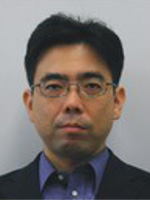
Katayama Hiroyuki
Associate Professor
The University of Tokyo
Dr. Katayama Hiroyuki is currently an Associate Professor at Graduate School of Engineering, The University of Tokyo. He received his B.S., M.S., and Doctor of Engineering in Urban Engineering from The University of Tokyo, Japan, in 1993, 1995, and 1998, respectively. He was Research Fellow of the Japan Society for the Promotion of Science during 1997-1998. He joined the Department of Urban Engineering, The University of Tokyo in 1998 as Research Associate, and promoted as Assistant Professor at the Department of Urban Engineering from January to July 2002, and Assistant Professor at the Institute of Environmental Studies, School of Frontier Science of the same university from August 2002 to March 2004. He resumed his position as Assistant Professor at the Department of Urban Engineering from April 2004 to October 2007 and became Associate Professor since October 2007. Dr. Hiroyuki’s research interests include health-related water microbiology focusing on virus detection, water/wastewater treatment and risk management. He has conducted research on development of virus concentration method, disinfection and survey on occurrence of viruses in water in Japan and Southeast Asian countries.
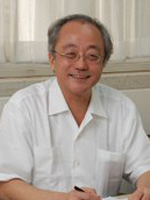
Kazuo Yamamoto
Vice President for Resource Development
Asian Institute of Technology
Prof. Kazuo Yamamoto graduated from Department of Urban Engineering, Faculty of Engineering, The University of Tokyo in 1977, and received his Master's in 1979 and his PhD in 1983. In 1985, he was appointed as Associate Professor of the Faculty of Engineering, The University of Tokyo and seconded to Asian Institute of Technology (AIT) for two years from 1987. He had served as Professor, the Faculty of Engineering and then Environmental Center, The University of Tokyo since 1995, Director, Environmental Science Center (2003-2007), and Visiting Professor & Senior Advisor to the AIT President (October to December, 2013). In January 2014, he was appointed as Vice President for Resource Development at the AIT and currently also serves as Professor in the Environmental Science Center, as well as Professor in charge of graduate program, Department of Urban Engineering, Graduate School of Engineering, The University of Tokyo.
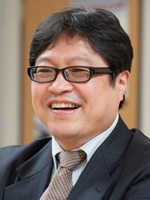
Kensuke Fukushi
Professor
The University of Tokyo
Dr. Kensuke Fukushi is the Professor at the Integrated Research System for Sustainability Science, The University of Tokyo, Japan. He obtained his Bachelor of Engineering and Master of Engineering in Civil Engineering from Tohoku University, Japan in 1989 and 1991, respectively. He received his Ph.D. in Civil Engineering from the University of Utah, U.S.A. in 1996. He joined Tohoku University in 1996 as Research Associate and promoted to be Assistant Professor in 1997. He served as Assistant Professor at Asian Institute of Technology (AIT), Thailand in 1999 and became Associate Professor at AIT in 2001. At the same year, he joined the Environmental Science Center, The University of Tokyo as Associate Professor. He moved to the Integrated Research System for Sustainability Science (IR3S), The University of Tokyo in 2005. Prof. Fukushi’s research interests include environmental engineering, risk assessment, climate change effect, water resource, biological technology, membrane technology. His research projects cover the integrated climate assessment – risks, uncertainties and society, establishment of research platform for developing models to predict future health risks posed by changes in climate, land use and population, development of international network for sustainability science and on health risk assessment in urban area.
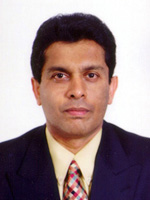
Lal Samarakoon
Director
GeoInformatics Centre, Asian Institute of Technology
Dr. Lal Samarakoon currently works as the Director of Geoinformatics Center of Asian Institute of Technology. He possess extensive experience working in Asia—10 years in Japan, which includes five years of graduate studies and over 15 years with Asian Institute of Technology, Bangkok. The focus of his work is on the application of spatial analytic techniques using GIS, remote sensing, GPS in resource management for sustainable development through teaching, research, training, and real-world application. As the Director of the self-funded Geoinformatics Center (GIC) of AIT, responsibilities include administration, personnel management, financial management, promotion, regional/international collaboration, research and development of real-world application related to geo-spatial technologies, institutional development and capacity building through training, and consulting in the region. Currently he is a Visiting Scientists for Japan Aerospace Exploration Agency (JAXA) providing his assistance to JAXA for promotion and development of technological capacities in Asia to use satellite data in real-world applications.
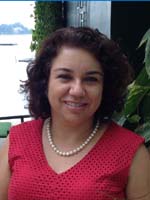
Mara Mendes
Senior Programme Specialist
Asian Institute of Technology
Dr. Mara Regina Mendes is a Senior Programme Specialist at the Regional Resource Centre for the Asia and the Pacifiaitc (RRC.AP), Asian Institute of Technology. She received her M.Sc. from the Federal University of Santa Catarina, Brazil, and her Ph.D. from The University of Tokyo, Japan. With over 15 years' experience in climate change as academia, international organization, and private sector, Dr. Mendes gained solid experience in market-based mechanisms, and has worked intensely in projects on solid waste management, renewable energy, fuel switch, energy efficiency, and forestry. Prior to joining RRC.AP, she acted as an Ad Hoc consultant for the UNFCCC and also worked as Climate Change and Sustainability Coordinator for Latin America at LRQA. From 2005 through 2012, Dr. Mendes was a Senior Carbon Market Analyst at Mitsubishi UFJ Morgan Stanley Securities (MUMSS) in Brazil. Prior to this, she held positions as researcher at the Institute for Global Environmental Strategies and at The University of Tokyo. Besides extensive work on climate change mitigation and carbon inventories, Dr. Mendes has also experience on MRV, carbon auditing, watershed management, water footprint, municipal solid waste management, recycling, environmental urban management, life cycle assessment. She authored research papers, academic and technical reports.
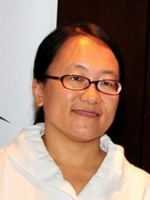
Niu Dongjie
Associate Professor
Tongji University
Dr. Niu Dongjie is currently an Associate Professor in College of Environmental Science and Engineering, Tongji University, Shanghai China. She has carried out a series of projects on anaerobic digestion of organic wastes and landfill leachate treatment, including 863 high-tech projects supported by Ministry of Science and Technology of China and projects sponsored by Shanghai Science and Technology Committee and others.
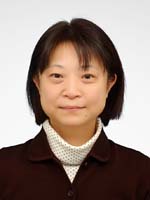
Nobuko Saigusa
Deputy Director
National Institute for Environmental Studies, Japan
Dr. Nobuko Saigusa is currently the Deputy Director, Center for Global Environmental Research, National Institute for Environmental Studies, Japan. Her background is in micrometeorology and the terrestrial carbon cycles. She is involved in various research programs including Global Environment Monitoring (CGER/NIES), JapanFlux and AsiaFlux (Japanese and Asian monitoring networks for greenhouse gas fluxes), and JaLTER (Japan Long-Term Ecological Research Network). Her scientific interest is temporal and spatial variation of carbon and water cycles in forest ecosystems in Asia and its interactions with global climatic changes.
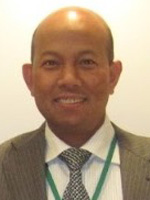
Nophea Sasaki
Associate Professor
Asian Institute of Technology
Dr. Nophea Sasaki is an Associate Professor of Natural Resources Management at School of Environment, Resources and Development, Asian Institute of Technology (AIT). Dr. Sasaki has worked on REDD+ scheme, development of forest carbon accounting systems, biodiversity conservation, and low-carbon development projects. Prior to joining AIT in January 2016, Dr. Sasaki was an Associate Professor at the Graduate School of Applied Informatics, University of Hyogo in Japan. He was a postdoc in forestry-carbon cycling modeling at the Max Planck Institute of Meteorology, a Bullard Fellow in advanced forest research at Harvard University, and a visiting scientist at Adelaide University. He is recognized for his research achievements in sustainable management of forests, carbon retention, and result-based financial compensation. He served as global expert panel on REDD+, forest management, and biodiversity conservation and advisor for a special REDD+ Promotion Project of the Forestry and Forest Products Research Institute in Japan. He has organized several regional training workshops on carbon accounting and carbon trading systems to government officials from ASEAN member states. Dr. Sasaki has a PhD degree majoring in forest management from Gifu University, Japan.
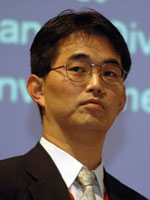
Osamu Mizuno
Director
Regional Resource Centre for Asia and the Pacific, Asian Institute of Technology
Mr. Osamu Mizuno is currently the Director of the Regional Resource Centre for Asia and the Pacific, Asian Institute of Technology. A Japanese national, Mr. Mizuno previously worked at the UN Secretary General's Advisory Board on Water and Sanitation at the UN headquarters in New York which is to give advice to the UN Secretary General as well as to galvanize action on water and sanitation issues. He has also served in the Ministry of the Environment, Japan in various capacities, with his last designation as Director of the Office of International Cooperation to promote co-benefit projects on climate change and other environmental challenges. He also worked for several international institutions including Global Environment Facility, the Regional Environmental Center for Central and Eastern Europe and the United Nations University. His professional career mostly involved promoting environmental policies and projects and establishing international cooperation relating to air and water pollution control, climate change mitigation and adaptation, chemical management. Mr. Mizuno completed both his bachelor's and master's degrees in Environmental Engineering at Kyoto University, Japan, where he specialized on water pollution control. He also obtained a master's degree in Public Administration at the John F. Kennedy School of Government, Harvard University.
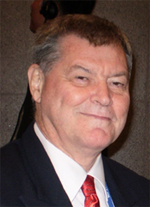
Peter King
Senior Policy Advisor
Institute for Global Environmental Strategies
Dr. Peter King has been an avid environmentalist since undergraduate days at Melbourne University and it has remained an abiding passion for 40 years. He started his career in the Soil Conservation Authority in the state of Victoria and became the Land Studies Coordinator in Victoria's first Ministry for Conservation. He spent some time at the Environment and Policy Institute, East West Center in Hawaii and then set up his own environmental consulting company. Following some successful work for the Asian Development Bank (ADB) as a consultant in the period 1984-88, he started work with the ADB in March 1991 as an Environment Specialist in the Office of Environment. He established a sound reputation as ADB's leading natural resources management ("green") expert, with personal responsibility for over 50 loan and TA projects. In 1998, he was awarded a Doctor of Philosophy (Environmental Science) degree from Murdoch University in Perth, with a thesis entitled "Integrated Economic and Environmental Planning at the Sub-national Level in Asia." In 2005, he took early retirement from ADB and is currently a Senior Policy Advisor for the Institute of Global Environmental Strategies, heads the Asian Environmental Compliance and Enforcement Network secretariat, and is Team Leader, Adaptation Project Preparation and Finance on the ADAPT Asia-Pacific project.
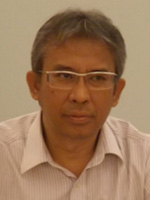
Rizaldi Boer
Executive Director
Bogor Agricultural University, Indonesia
Prof. Rizaldi Boer is currently Executive Director of Centre for Climate Risk and Opportunity Management in Southeast Asia and Pacific of Bogor Agricultural University. He has been working on issues related to GHG mitigation strategies focusing on agriculture, forest and other land uses since 1998. Now, he is very active in conducting a number of studies related to policies toward low carbon development. Some of his recent works related to LCD are Low carbon development strategies of Bengkalis District-Riau Province that reduce pressure on peat-land ecosystems, reducing agricultural expansion into forests: Analysis of implementation and financing gaps and supporting local governments in the development of local appropriate mitigation action (LAMA-Indonesia) in South Sumatra and Papua Province. He obtained his PhD degree in Agriculture from University of Sydney, Australia in 1994.
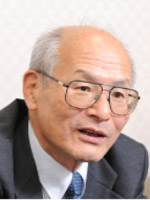
Shuzo Nishioka
Senior Research Advisor
Institute for Global Environmental Strategies
After 12 years engineering experience in Asahi Chemical Co. Ltd, he joined National Institute for Environmental Studies of Japan (NIES). Research areas there were global and regional environmental assessment and environmental policy. He served as professor of Tokyo Institute of Technology and Keio University in 1997-2001 and as Executive Director of NIES in 2001-2007. From late 1980's, he devoted in climate change issues and engaged in IPCC from 1988 to 2007 mainly in impact assessment and adaptation methodology. In 2004 -2009, he lead a strategic research of Japan Low Carbon Society Project of MoE, to explore the scenario of 70% GHG reduction in 2050 in Japan. This works was extended to Prime Minister Fukuda's Low Carbon Society policy (60-80% reduction in 2050) declared at Toyako G8 Summit. From 2007-12 he served as a Co-leader of Kakushin Climate modeling project of MEXT and chaired Sub-committee for Low Carbon Japan Scenario in Central Council of Environment Japan. His recent work focuses on international collaboration for supporting Asian countries' leap-fogging to low carbon world and collaboration with European climate research community.
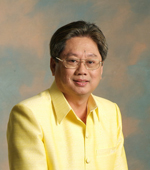
Supat Wangwongwatana
Senior Programme Specialist
Asian Institute of Technology
Dr. Supat Wangwongwatana joined the Regional Resources Center for Asia and the Pacific (RRC.AP) in April 2012 working for the Acid Deposition Monitoring Network in East Asia (EANET). Prior to joining RRC.AP, he was with Ministry of Natural Resources and Environment as the Secretary-General of the Office of Natural Resources and Environmental Policy and Planning and the Director-General of the Pollution Control Department for 5 years during which he oversaw all environmental and pollution management programs in Thailand. He also served as the Chairperson for the Clean Air Initiative for Asian Cities during 2003 and 2004; the Director of the Thailand Air Pollution Center of Excellence; the Coordinator of Clean Air Training Network for Asia; and served on the WHO advisory panel in the areas of air and water pollution. He is instrumental and responsible for the improved air quality in Bangkok and Thailand. He received his Ph.D. in Air Pollution Engineering from the University of Cincinnati, Master Degree on Environmental Science and Management from Asian Institute of Technology and the First Class Honor (Gold Medal) for his B.Sc. in Public Health (Occupational Health) from Mahidol University. He is also the first recipient of an honorary degree from USEPA's Air Pollution Training Institute in recognition of his outstanding leadership, vision, and technical expertise in the field of air pollution training, and dedicated service to the field of air quality management and for his determined efforts to improve the air quality of Thailand and the region and commitment to training young people in his field in preparing future generations to protect health and safeguard the natural environment. He was also awarded an Asian Air Quality Management Champion from the Clean Air Initiative for Asian Cities for his efforts to institutionalize air quality management in Thailand and for acting as a role model for air quality management practitioners in cities and countries across Asia.
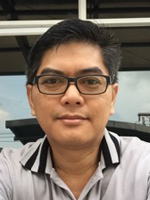
Thawal Saengsawang
Marketing Director
TES-AMM (Thailand) Co., Ltd.
Mr. Thawal Saengsawang received his Master degree in Chemical Engineering from Chulalongkorn University, Thailand. He has worked as Marketing Director at the TES-AMM since 2005 focusing on electronic waste recycling. He also works at SAND Co., Ltd. since 2001 as a consultant specializing in hazardous and non-hazardous waste recycling. Since 2015, Mr. Saengsawang has been actively involved in EH&S and waste management in the Environmental Solution (Thailand) Co., Ltd. as well as at the PSEZ Industrial Estate in Laos.
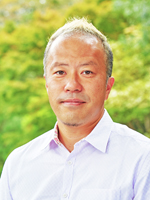
Tomonori Ishigaki
Senior Researcher
National Institute for Environmental Studies, Japan
Dr. Tomonori Ishigaki obtained his Butcherer, M.Eng., and Ph.D. specializing in Environmental Engineering from the Osaka University, Japan in 1996, 1998, and 2000, respectively. He was a Postdoctoral Fellow of Japan Society of Promotion of Science at the same university in 2000-2001. He has been engaged in the waste landfill issues for more than 15 years. His research interests and published works include gas emission from landfills, methane oxidation in landfill surface, microbial community assessment in landfill, leachate management in Tropical Southeast Asia, assessment of gas potential of landfilled waste. Dr. Ishigaki was a Researcher at the National Institute for Environmental Studies (NIES) from 2001 to 2005; and joined Ryukoku University in 2005 as Lecturer and promoted to Associate Professor later on. He rejoined NIES in 2010 as a Senior Researcher.
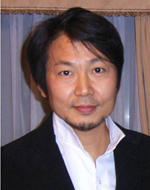
Tsuyoshi Fujita
Director
National Institute for Environmental Studies, Japan
Prof. Tsuyoshi Fujita is a Director for Center for Social and Environmental Systems Research at National Institute for Environmental Studies (NIES), Japan. He is also an alliance professor of Nagoya University as well as a visiting professor of United Nations University in Japan. His research fields are eco industrial development, low carbon city, urban environment simulation system, circular economy planning and spatial LCA, where he has published around seventy journal papers. He is engaged in several national research projects to develop integrative urban technology and policy simulation system for Japanese and Asian cities and regions.
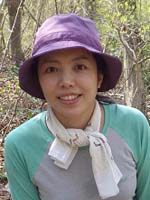
Yayoi Takeuchi
Researcher
National Institute for Environmental Studies, Japan
Dr. Yayoi Takeuchi obtained her B.Sc. in Agricultural Sciences from Nagoya University, Japan in 2001, and M.Sc., and Ph.D. specializing in Biology from the Kyoto University, Japan in 2003 and 2006, respectively. She was Research Fellow of the Japan Society for the Promotion of Science at Kyoto University, University of Zurich, Switzerland, as well as Research Fellow at Research Institute for Humanity and Nature, Japan during 2004-2010. She was Ph.D. Fellow at the Graduate University for Advanced Studies, Japan during 2010-2013. Dr. Takeuchi joined the National Institute for Environmental Studies, Japan as Researcher in 2013. She was trained as an ecologist, and has conducted studies on plant reproductive ecology, empirical and theoretical community ecology, and biodiversity conservation. Her main field site is Southeast Asian tropical forests. The study in which she is currently engaged focuses on human-nature interactions in a human-modified landscape in Borneo, towards the formulation of a conservation strategy integrated with indigenous practice.
-
By Prof. Akimasa Sumi
-
By Dr. Shuzo Nishioka
-
By Dr. Bindu N. Lohani
Current adoption of sustainable development goals (SDGs) by the UN General Assembly and the announcement of the Paris Agreement at UNFCCC COP21 calls for action towards shifting our perspective of ‘waste’ as unwanted substances to waste as ‘resources.’ Multiple number of SGDs, especially SDG #12 (‘Ensure responsible consumption and production patterns’) goal no. 6 (clean water and sanitation) and goal no. 11 (sustainable cities and communities) presents a huge scope for sustainable waste management and resource recovery activities. Similarly, the climate co-benefit of waste sector such as waste prevention, resource recovery, reuse and recycling as climate mitigation measures also open a new array of opportunities in sustainable waste management in the region.
This presentation illustrates the convergence between Waste, Climate and SDGs, where SDGs cannot not be achieved without tackling climate change, and addressing climate change is must for fostering sustainable development, also waste management and recycling are key drivers to both sustainable development and tackling climate change by reducing waste related GHG emissions. This presentation concludes with highlighting how the Asian Institute of Technology (AIT) has been and can continue to work towards sustainable waste management in the region through its regular academic teaching, innovative technological and policy research, and regional networking projects. -
By Prof. Rizaldi Boer
Avoiding the warming of above 1.5 or 2.0°C from mean of pra-industrial era, an objective agreed upon by the international community, will require that global net GHG emissions approach zero by the second half of the 21st century. This in turn will require very steep reduction of anthropogenic GHG emission in all sectors of activities. In most of ASEAN countries, the agriculture, forest and other land uses (AFOLU) still a major contributor of the emission. Globally, without mitigation effort, contribution of this sector to global emission may increase from 22% to 30% within the next 40 years. On the other hand, forest also can help slowing global warming by storing and sequestering carbon and help regulating local and regional rainfall. Forests also give benefits for millions of people not only as source of food, medicine, clean drinking water, but also for recreation, aesthetic, and spiritual needs. Unsustainable uses and mismanagement of land and forest resources actually lead to high emission but also to negatively impact development itself. It is very important for policy makers to be able to design spatial planning system that include emission reduction target along with economic planning, maintenance of watershed functions and ecological buffer. Role of science for helping policy formulation and planning is very important in this respect. This presentation will share Indonesian experience in applying science through the use of a developed tool by local governments for the integration of land-based sectoral programs and climate change mitigation policies. The tool helps the policy makers to be able to assess whether the current programs and future plans address the development problems and also contribute to reduction of emission, and to assess preconditions required for effective implementation of the action plans. -
By Dr. C. Visvanathan Current adoption of sustainable development goals (SDGs) by the UN General Assembly and the announcement of the Paris Agreement at UNFCCC COP21 calls for action towards shifting our perspective of 'waste' as unwanted substances to waste as 'resources.' Multiple number of SGDs, especially SDG #12 ('Ensure responsible consumption and production patterns') goal no. 6 (clean water and sanitation) and goal no. 11 (sustainable cities and communities) presents a huge scope for sustainable waste management and resource recovery activities. Similarly, the climate co-benefit of waste sector such as waste prevention, resource recovery, reuse and recycling as climate mitigation measures also open a new array of opportunities in sustainable waste management in the region. This presentation illustrates the convergence between Waste, Climate and SDGs, where SDGs cannot not be achieved without tackling climate change, and addressing climate change is must for fostering sustainable development, also waste management and recycling are key drivers to both sustainable development and tackling climate change by reducing waste related GHG emissions. This presentation concludes with highlighting how the Asian Institute of Technology (AIT) has been and can continue to work towards sustainable waste management in the region through its regular academic teaching, innovative technological and policy research, and regional networking projects.
-
By Prof. Tsuyoshi Fujita
The low carbon movements extend in the world particularly in rapidly growing Asian cities and regions. Wide range of technologies, policy initiatives have been discussed for their planning and implementation. Since every city and region have their own characteristic features and different policy decision circumstances and backgrounds, rather than unanimous policy framework or uniform technology design, low carbon technologies and policies need to be deliberately selected, evaluated and diagnosed with objective, transparent, quantitative and scientific manner.
The research project, firstly, focuses on developing integrative simulation models to design the optimal low carbon targets in the future for cities and regions as well as identifying efficient roadmaps with optimal combination of technologies and social systems. Secondly, the model results are applied into the spatial analysis based on Geographic Information Systems of cities to design suitable location patterns of land use and urban structures in a long run with designing key demonstration projects for the low carbon development. Finally, the results would be applied into implementing for eco-city panning under the interactive collaboration with public-private stakeholders. Eco-city smart monitoring systems are developed and implemented to support multi-stakeholder discussion for co-design procedures through quantification, visualization and comparison for alternative eco-city optional packages. Demonstration research projects in Fukushima, Japan, and Bogor City, Indonesia, are provided as case studies. Academic and policy outcome for integrative research challenges are identified such as strategic technology assessment and coordination for sustainable low fossil carbon society strategies, innovative monitoring system for the systematic project design and carbon credit certification are discussed. -
By Prof. Kensuke Fukushi
The energy, environment and ecosystem (3E) Nexus initiative project is an effort to achieve the above. The Integrated Research System for Sustainability Science (IR3S), University of Tokyo with the vision of enhancing multinational research collaborations on low carbon development in Asia-Pacific countries has initiated the 3E-Nexus project. The project aims to advance mitigation actions by facilitating the diffusion of advanced low-carbon technologies, products, systems and infrastructure in line with the Japanese Joint Credit Mechanism (JCM) and other crediting mechanisms. On the other hand, the project targets capacity development activities such as kick-off meetings, workshops, trainings to understanding on the institutional and technical aspects such as GHG emission reduction projects and Measuring, Reporting and Verification (MRV) methodologies of the JCM both at government and private sectors. -
By Dr. Mara Mendes
The Regional Resource Centre for Asia and the Pacific (RRC.AP) of the Asian Institute of Technology (AIT) in collaboration with the Institute for Global Environmental Strategies (IGES) is conducting a project on the assessment of potential transfer of Japanese selected low carbon technologies in Thailand, Vietnam and Indonesia. The assessment includes the analysis of technical, regulatory, financial, socio-economic aspects, both in terms of challenges and opportunities to promote low-carbon technologies in targeted Asian countries. The target technologies include waste heat recovery in the cement industry; Light Emitting Diode (LED); once-through boiler; industrial heat pumps; high efficiency air compressor, micro-cogeneration, and solar photovoltaic. A wide range of stakeholders, including policy makers, users, government agencies and academia were consulted through interviews, site visits and consultation workshops held in each country. The preliminary results of the assessment will be discussed. -
By Ms. Chayathorn Thanawattanadamrong
Impact of climate change can now be seen all over the world whether in developed or developing countries. Southeast Asian counties, which have been experiencing rapid economic and population growth, are especially vulnerable to climate change. The ASEAN Community (AC), which will be formed in 2016, places an importance on issues of climate change and sustainable development. It is widely pointed out that one of the important tools for development and realization of low carbon and resilient society (LCRS) in the region is a capacity development of key stakeholders in the field of climate change as well as the access to information related to LCRS development. Thailand Greenhouse Gas Management Organization (Public Organization) (TGO) under the Ministry of Natural Resources and Environment is a responsible agency in Thailand for climate change mitigation activities. TGO initiated the establishment of Climate Change International Technical and Training Center (CITC) with support from Japan International Cooperation Agency (JICA). CITC aims to be a “one-stop technical training center” and networking platform on mitigation and adaptation for the Southeast Asian countries and other developing countries. -
By Dr. Tomonori Ishigaki
Waste disposal is simple behavior of waste removal from daily life. Urban city required to develop the disposal site for the final responsibility for living standard and environmental safety. Rapid growth of development of Asian city are facing to the lack of capacity of appropriate disposal of municipal waste even though the promotion of recycling activity can reduce the amount of waste to be disposed. The presentation addresses the current study on technology development of final disposal system that consists of the engineered landfill, the leachate collection, stabilization, and treatment, and the gas management in collaboration with the study team in Thailand. -
Mr. Joao Aleluia
The presentation will focus on the experiences of the United Nations Economic and Social Commission for Asia and the Pacific (ESCAP) in supporting cities of the region in implementing “waste-to-resource” initiatives. An overview of the Integrated Resource Recovery Center model (IRRC) will be provided, in particular the lessons learned from piloting this model in cities of Bangladesh, Cambodia, Pakistan, Sri Lanka and Viet Nam, which are distilled in the publication “Valuing Waste, Transforming Cities”, released by ESCAP in October 2015. The presentation will also reflect on the importance of measuring and quantifying co-benefits in the solid waste sector, especially in initiatives that lead to the reduction of greenhouse gas emissions. -
Dr. Niu Dongjie
We conduct a comprehensive review of rural solid waste (RSW) in terms of characteristics, management and legislation. Survey results show that RSW generation rates range from 0.25 to 2.1 kg/capita/day in different rural villages across regions of China. Total RSW generation has been increasing, which is far higher than official data in 2014. RSW are dominated by food residue and coal ash/cinder/dust (at approximately 70%). Most of RSW are still discarded randomly without any treatment in China. With the purpose of promoting RSW management system in China, the problems and challenges are also discussed and identified, and some recommendations and expectations are proposed. -
By Mr. Thawal Saengsawang
Today, there are plenty of e-waste coming out every day and more every year since Digital technology comes into place in our daily life. It will create problems if not managed properly. As a recent 4G license auction with 4 billion baht, of course mobile phones will become a plenty of e-waste in the near future comparing with other WEEs. If the question is “is it a problem?”, the answer is both of “Yes” and “No”. it will not be a problem if manage properly it will be a benefit to save natural resources especially rare earth materials, no need to get from ore mine but from urban mining (from WEEE) to reduce CO2 Emission, reduce global warming. On the other hand, it will be a problem if we do not mange properly, e.g., drop into general bin without any classification, therefore what we are going to do to manage in proper process.
The contents to be presented here will be look in 4 main factors called “L-U-M-P” factors according to my experience in this field for over 10 years. Many of these factors I think will affect or impact to the e-waste management system in Thailand or even to neighboring countries because of cultural similarities, for instance, consumers or producers look for get paid rather than pay, no law enforcement especially WEEE directive, people have no awareness on this etc. by these factors most are caused by stakeholders either Government sector, Producers or Importers, Users and Recyclers and they all look for their own benefit rather than for the public. So in order to be successful and achieve the sustainable management system we need to collaborate all 4 factors together; government, producer, user and recycler, as now pushing WEEE law. -
Dr. Jitendra Vir Sharma
Dr. Nobuko Saigusa is currently the Deputy Director, Center for Global Environmental Research, National Institute for Environmental Studies, Japan. Her background is in micrometeorology and the terrestrial carbon cycles. She is involved in various research programs including Global Environment Monitoring (CGER/NIES), JapanFlux and AsiaFlux (Japanese and Asian monitoring networks for greenhouse gas fluxes), and JaLTER (Japan Long-Term Ecological Research Network). Her scientific interest is temporal and spatial variation of carbon and water cycles in forest ecosystems in Asia and its interactions with global climatic changes. -
Dr. Peter King
While nearly every country has adopted environmental impact assessment (EIA), too many countries are using EIA as regulatory tool - ticking the box that an EIA has been done as a condition of project approval. Focusing more on the environmental monitoring and management plan (EMMP) attached to the EIA, ensuring that monitoring requirements are adequately funded as part of the conditions for project approval, building environmental monitoring into construction contracts and operational conditions, involving the affected population in community-based monitoring, and collecting the monitoring results in a publicly available database are essential activities to improve project design. Subsequently, the environmental monitoring data then need to be used in designing similar projects or projects in the same area. -
Dr. Hiroyuki Katayama
Coliform bacteria and Escherichia coli are simple and inexpensive to enumerate, yet are not always ideal indicators because they can survive and increase in number under some natural environment condition. Enteric viruses are more tolerant than coliforms against stresses in water environment and are most often the causative agents of disease via waters.
Tokyo Metropolitan Government has been trying to improve coastal water environment during and after rainfall events. As 2020 Olympic water sports is scheduled in the Odaiba seaside park, where the concentration of fecal indicators such as E.coli and enteric virus are known to increase during and after rainfall events.
Virus contamination levels in Tokyo bay were monitored. Also, a simple treatment method to mitigate the CSO is proposed. -
Dr. Yayoi Takeuchi
Indigenous communities in Borneo leave forest patches within the traditional land-use system in an area of shifting cultivation to obtain ecosystem services; the forest is called as communally reserved forests (CRFs) here. In the human-modified landscape in Borneo, CRFs would be the only option for conservation of natural forest. To evaluate the conservation values of CRFs, I investigated how those forests had both social and ecological functions. From a sociological survey on CRFs, I found that the traditional definition of CRFs has changed and most CRFs had been previously disturbed. Villagers often accessed CRFs to obtain various kinds of ecosystem services, and they have increasingly recognized the value of CRFs along with the degradation of surrounding forests. From an ecological survey on tree species diversity in CRFs, I found that the tree species diversity in CRFs was high and equivalent to that of the primary forest although CRFs were fragmented and some had been disturbed in the past. The species composition between intact forests and disturbed forests in the past was also not clearly different, which indicates that past disturbance may not be intensive. Furthermore, all CRFs contained unique and endangered species, which are listed in the IUCN Red List. In conclusion, conservation of CRFs would contribute to restoring regional biodiversity and preserving ecosystem services for local communities in Borneo. -
By Dr. Geetha Mohan
This study confirms the strategies that enhancing resilience to climate and ecosystem changes by integrating modern and traditional systems in rural Asia includes Vietnam, Indonesia and Sri Lanka. However, some interventions are essential to further strengthen them, i.e., the building of a mosaic system has the potential to create a system of more resilient to climate and ecosystem changes. The Mosaic systems can help to achieve further resilient societies. A framework was developed for assessing and analyzing resilience in detail and concrete strategies to enhance resilience were formulated in accordance with case studies. The results exhibits that the field surveys and statistical analysis demonstrated that it is possible to develop strategies to adapt to climate and ecosystem changes by primarily using traditional varieties of rice crop that can adapt to climate change in combination with modern varieties of rice crop in rural Vietnam and Sri Lanka. While, this is different strategy from improving varieties on which the success of the Green Revolution was formed. -
Dr. Nophea Sasaki
Adoption of the Paris Agreement in December 2015 to limit greenhouse gas emissions provides new hope for responsible low carbon development in developed and developing countries. This adoption further strengthens the REDD+ scheme of the UN Framework Convention on Climate Change, which provides result-based financial incentives for reducing carbon emissions from deforestation and forest degradation, conservation of forests, sustainable management of forests, or increasing carbon stocks through forest restoration. As deforestation continued, Southeast Asia emitted 648 TgCO2 annually between 2000 and 2010 in addition to affecting 83-91% of the threatened flora and fauna species. Depending on effectiveness of the REDD+ activities, up to 80% of the above emissions can be reduced with the appropriate carbon price. Unfortunately, carbon prices in recent years were not high enough compared to revenues from clearing of forests for industrial plantations. It is obviously important that payment for other ecosystem services be considered to increase additional financial incentives from the results of biodiversity safeguarding. If well preserved, forests in Southeast Asia could regenerate US$1.4 trillion annually from payment for ecosystem services or about 29% of GDP in Japan. This report reviews the previous experiences in REDD+ activities, payment for ecosystem services, and biodiversity conservation with special reference to Southeast Asia. -
By Dr. Nobuko Saigusa
The Center for Global Environmental Research, National Institute for Environmental Studies has established a fundamental infrastructure for an integrated carbon observation and analysis system based on satellite, airborne, and ground-based observations, and atmospheric and terrestrial carbon cycle models. Atmospheric transport modeling and inverse modeling are being tested and improved for better utilization of reinforced observation data from the Asia-Pacific region. Regional net carbon fluxes between atmosphere and land are estimated by both "top-down” approach (with inverse models) and "bottom-up” approach (with surface flux observation network data (e.g. AsiaFlux) and terrestrial ecosystem models). Results from different methods are compared, and similarities and differences of estimated carbon budgets are discussed. Discussion will include a review of current issues for better constraints of global, continental, and regional carbon budgets, detection of carbon cycle change particularly in the Asia-Pacific, and need of future observation missions for better understanding of the global and regional carbon cycle. -
Dr. Supat Wangwongwatana
As a result of rapid economic development in an unstainable manner, urbanization, industrialization and increasing population, Asian region, in particular in urban areas and their surroundings, has been experiencing increasing level of atmospheric pollution, in particular PM2.5 and O3, which are transboundary and can cause regional atmospheric pollution problem. They have actually caused negative impacts to human health and environment and backfiring to the economic development. Efforts have been made through several regional initiatives and programs in the last two decades to establish and carry out continuous monitoring of atmospheric environment in Asia in order to assess its state of atmospheric environment in hoping that it will lead to the implementation of mitigation actions and subsequent improvement of the state of atmospheric environment. The presentation will cover the establishment and the implementation of regional monitoring of atmospheric environment in Asia under three regional networks, namely Acid Deposition Monitoring Network in East Asia (EANET), Malé Declaration on Control and Prevention of Air Pollution and Its Likely Transboundary Effects for South Asia (Malé Declaration) and Atmospheric Brown Cloud (ABC) Program. Their most recent monitoring results will also be summarized and presented. -
Presentation 4-3: Geoinformatics for Environmental Information Collection, Management and MonitoringDr. Lal Samarakoon
The objective behind the SDG concept launched in 2015 was to produce a set of universally applicable goals that balances three dimensions of sustainable development; environmental, social, and economic. As these factors are interlinked, it was recognized that developments should address through an integrated approach of these three pillars. Also, it is documented that appropriate indicators need to be identified as indicators would be the backbone of monitoring progress towards the SDGs. Within the 17 SDG goals launched, over 140 indicators are being identified to measure and monitor the progress in national and global scale. Needless to say, it is an enormous challenge to collect data and information of these indicators, specifically from national level, for continuous monitoring of the progress of the goals. Geoinformatics, combining satellite imageries, GPS and GIS have greatly expanded opportunities for collection, integration, and monitoring, and analyzing various earth related phenomenon and these technologies are readily available for quantify the SDG indicators. Disaster losses, forest degradations and forest change, urbanizations and green/urban ratio, air quality, water quality, ocean status, crop area and yield estimation, desertification, climate related extreme events are some of the quantifiable data that could use to measure SDG indicators. These technologies allow affordable information as well as filling information gaps in various spatial scales. This presentation covers examples drawn from number of applications where space based technologies could apply for environmental monitoring as well as show potential to use as SDG indicators.
-
By Dr. Tomohiro Okadera
Centre for Regional Environnmental Research, NIES
Dr. Tomohiro Okadera specializes in environmental engineering and economics with especially interested in interrelationship between human activities and water ecosystems in a regional scale. He has developed the method of water inventories of Yangtze River and Tokyo-bay area by using the input-output analysis models, water footprint analysis of energy production in China and Thailand, and valuation of water ecosystems in Japan so far. Recently he attempts to apply water-energy nexus approaches to investigate implementation and adaptation of innovative energy-environmental technology systems for Asia-Pacific regions. -
By Dr. Yoshikatus Takazawa, Ayako Kinoshita, Mitsuha Yoshikane, Atsushi Tanaka , Yasuyuko Shibata
National Institute for Environmental Studies
IDEA Consultants, Inc.
Dr. Yoshikatsu Takazawa is a member of "Center for Environmental Measurement and Analysis" in the National Institute for Environmental Studies, Japan. The theme of his research has been the analytical method, monitoring, and environmental chemodynamics of organochlorine pesticides, perfluorinated alkyl substances and other hazardous chemicals with high priority. For several years, he has been in charge of sub-projects on "Advanced Environmental Measurement and Analysis Research Program" and "Research on Disaster Environment". His aim is to provide solutions and preventative measures for environmental issues by developing measurement procedures to contribute towards an understanding of the environment and changes in that environment. -
By Dr. Tomohiko Isobe, Shoji F. Nakayama, Joon-Woo Kim, Nguyen Minh Tue, Maricar Prudente, Pham Hung Viet, Agus Sudaryanto, Tatsuya Kunisue, Shinsuke Tanabe
Dr. Tomohiko Isobe graduated and received Ph. D in Agriculture from United Graduate School of Agricultural Science, Tokyo University of Agriculture and Technology in 2001. He had worked as a postdoc at National Institute for Environmental Studies (2001-2005) and Ehime University (2005-2008) and as a Faculty Member at Ehime University until 2014. He started his second career in NIES from May 2014 as a Temporal Researcher. His major is Environmental Analytical Chemistry and research interests are developing the analytical method for emerging environmental contaminants, biomonitoring of chemicals for large scale cohort study, and quality assurance and quality control of the high throughput chemical analysis. Previous research topics were analytical method and environmental behavior of alkyl phenolic compounds, comprehensive analysis of steroid estrogens and their metabolites, biomagnification and temporal trend of brominated flame retardants, and monitoring of other anthropogenic environmental contaminants. Now he is involved in National Center of the Japan Environment and Children's Study (JECS), which is the nation-wide large-scale birth cohort study. Under the JECS project, he is developing the high throughput analytical method for nicotine metabolites, POP chemicals and novel flame retardants and applying developed methods to large-scale biomonitoring. -
By Dr. Yosuke Koyama, Nukiyuki Suzuki
Centre for Environnmental Risk Research, NIES
Dr. Yosuke Koyama received a Bachelor’s degree in chemical engineering in 2010 and a Master’s degree in industrial chemistry in 2012, both from Doshisha University, with his research on the characterization of nanoparticles generated from fuel cladding materials used in next generation nuclear reactor. In 2015, he obtained his Ph.D. in Environmental Engineering from Kyoto University, with his research on the exposure assessment of nanoparticles in working environment of disaster area of the Great East Japan Earthquake and toxicodynamics of inhaled nanoparticles. Since 2015, he works on the research project on “Health and Environment Risk Management Strategies in Environmental Emergency” in NIES, especially on proposal of phased criteria value in disaster. His research interests include strategic approach of chemical risk management and control. His research interests also extend to behavior of radioactive cesium contained in aerosol generated from the radioactive waste in incineration. -
By Dr. Sohee Minsun Kim
Urban Environmental Management, SERD
Asian Insittue of Techonology
Dr. Sohee Minsun Kim is an Assistant Professor in Urban Environmental Management Program at Asian Institute of Technology (AIT) in Bangkok, Thailand. Her current focus of research is on the assessment and policy development for sustainable (peri-)urban land use and livelihood.
A native of South Korea, Dr. Kim holds a Bachelor’s degree in Architecture and Landscape Design from Tama Art University in Japan, a Master’s degree and a PhD in Urban Engineering from the University of Tokyo. Prior to joining AIT, she has participated in various research projects on integrated planning system in metropolitan region, slum upgrading and community empowerment throughout her academic and professional career at the University of Tokyo, Tata Institute of Social Sciences (TISS) in India, United Nations University – Institute for Sustainability and Peace, and National Graduate Institute for Policy Studies in Japan. -
By Guilberto Borongan
Coordinator and Programme Specialist
Regional Resource Centre for Asia and the Pacific (RRC.AP)
Asian Insittue of Techonology
Waste management is high on the national and international agenda due to severe negative impacts on environment, lack of resources to effectively manage waste, and loss of resources which could be saved and/or recovered through proper waste management based on the waste hierarchy, circular economy and 3R approach (reduce, reuse and recycle). Giving importance and priority at national and local level on waste management and 3R; to support developing Asian countries in achieving the 2030 Sustainable Development Goals (SDGs) targets to enable the environment sector and other relevant sectors to identify, justify, address and intervene with policies and actions that will prevent and reduce the negative impact on environment and health, energy and material security as well as boosting economic activities, while at the same time alleviating poverty. RRC.AP is providing technical support on national and local capacity for waste management through: scientific information, action-oriented policy, awareness raising, pilot demonstrations, infrastructure and technology, trainings for enhancement of capacity and partnership. Waste management activities include: National and City Waste Management Strategies; Academic Curriculum on Holistic Waste, Climate and Clean Air Coalition (CCAC) – Municipal Waste Management Initiative (CCAC-MSWI) projects in 5 Southeast cities assessments to mitigate short-lived climate pollutants; ASEAN End-of-Life Vehicle (ELV) Recycling project and UNIDO Partnerships for Action on Green Economy (PAGE) for Industrial Waste Inventory in Mongolia. -
By Dr.Nophea Sasaki, Somanta Chan, Hiroshi Ninomiya
Dr. Nophea Sasaki is an Associate Professor of Natural Resources Management at School of Environment, Resources and Development, Asian Institute of Technology (AIT). Dr. Sasaki has worked on REDD+ scheme, development of forest carbon accounting systems, biodiversity conservation, and low-carbon development projects. Prior to joining AIT in January 2016, Dr. Sasaki was an Associate Professor at the Graduate School of Applied Informatics, University of Hyogo in Japan. He was a postdoc in forestry-carbon cycling modeling at the Max Planck Institute of Meteorology, a Bullard Fellow in advanced forest research at Harvard University, and a visiting scientist at Adelaide University. He is recognized for his research achievements in sustainable management of forests, carbon retention, and result-based financial compensation. He served as global expert panel on REDD+, forest management, and biodiversity conservation and advisor for a special REDD+ Promotion Project of the Forestry and Forest Products Research Institute in Japan. He has organized several regional training workshops on carbon accounting and carbon trading systems to government officials from ASEAN member states. Dr. Sasaki has a PhD degree majoring in forest management from Gifu University, Japan. -
By Ms. Laksiri Chomchuen and Vilas Nitivattananon
Asian Insittue of Techonology
Ms. Laksiri Chomchuen currently is a PhD candidate in Urban Environmental Management from AIT. She holds a Master degree in Regional and Rural Development Planning from Asian Institute of Technology, and a Bachelor degree in Social Work from Thammasat University, Thailand. She was recently working as an International Consultant for the United Nations Economic and Social Commission for Asia and the Pacific (UN ESCAP), under the regional programme entitled ‘Pro poor and Sustainable Solid Waste Management in Secondary Cities and Small Town’ in 2014-2015. She also took a leading role in regional development projects and academic research. She worked as a Research Analyst for the PTT Public Company Limited under the Cooperated Social Responsibility Division (CSR) in 2012-2014. Prior to that, she was a Social Researcher cum Program Coordinator for AIT on the specialized areas of urban environmental management application projects, evaluation of solid waste management program, community and local initiatives development, and gender equality empowerment during 2007-2011. -
By Mr. Nurrohman Wijaya, Vilas Nitivattananon
Urban Environmental Management, SERD
Asian Insittue of Technology
Mr. Nurrohman Wijaya was born in Bandung City, Indonesia. Currently, he is a PhD student in Urban Environmental Management (UEM), School of Environment, Resources and Development (SERD) at the Asian Institute of Technology (AIT), Thailand. His current research is on climate change adaptation and sustainable urban development. He obtained his bachelor’s degree in the field of Urban and Regional Planning from the Institute of Technology Bandung (ITB), Indonesia in 2004, and completed his master’s degree in the field of UEM from AIT, Thailand in 2010. He had worked as a research associate in AIT, and an urban planner in various Indonesia’s sub-national and government agencies. His research interests mainly focuses in the area of urban planning, infrastructure planning, urban environmental management, sustainable urban development, and climate change adaptation.
-
January 27 - 28, 2016, at Asian Institute of Technology, Thailand
